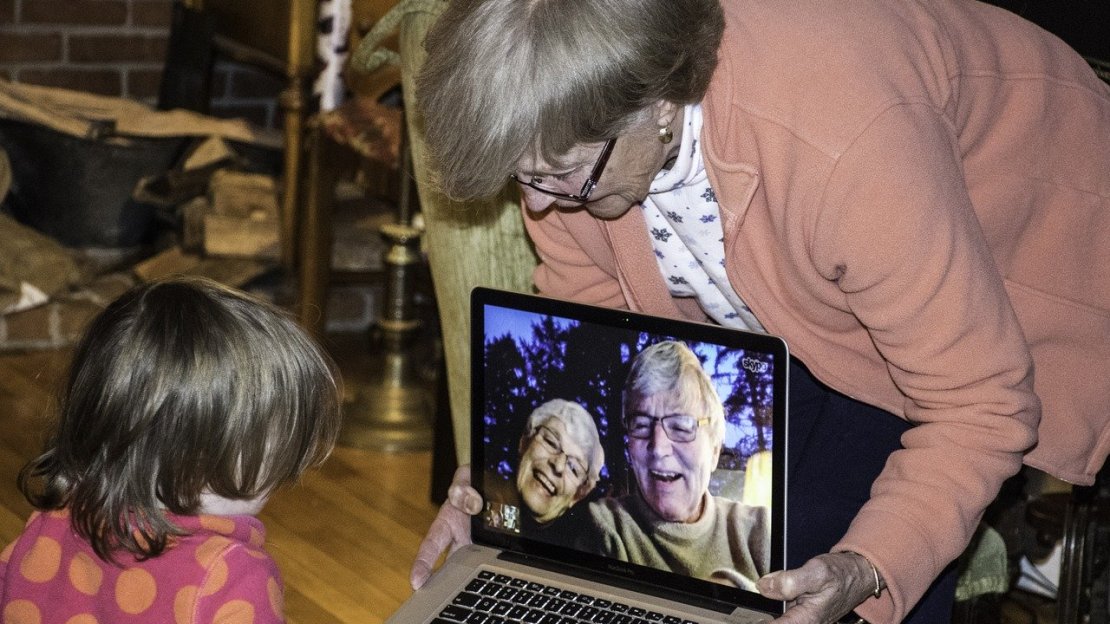John Tolley, April 16, 2020
A great many things have been put to the test by this pandemic: our economy, our healthcare system, our educational institutions. Some we can control; most we cannot. But nowhere are the rigors of this unique moment more acutely felt than in our relationships.
Whether it is with our significant other, children, or parents, we are wading through uncharted waters. Many among us are worried about how they will maintain their own wellbeing while looking after the wellbeing of others. More still are left wondering if their relationships can indeed stand up to the strain being placed on them.
BTN LiveBIG recently corresponded with Claudia Haase, Assistant Professor of Human Development and Social Policy at Northwestern University. A life-span developmental psychologist, Haase?s work explores the role of emotion and motivation throughout our lives. She touched on how embracing our emotions can help us work through them, the need for self-care, and how important verbal and emotional communication is within our relationships.
(This interview was edited for clarity and length.)
COVID-19 and the quarantine have left many people uncertain, fearful, and anxious, and at the same time it has removed them from a great portion of the social network. How should people go about processing these emotions in this unique situation? Do we need to look for new ways of connecting?
These are emotionally trying times. There is no simple recipe, but I would highlight that emotions often serve important functions. Not only positive but also negative emotions. When we feel sad, we may reach out to others to seek help and comfort. When we feel scared, we may pay special attention to ways how we can protect ourselves and others. So, perhaps, instead of fighting against or suppressing our emotions, an alternative may be to accept them - to embrace them and to not judge them. Emerging affective science research shows that accepting emotions can be very beneficial.
How best can parents and caregivers look after their own emotional wellbeing while trying to care for the emotional and physical wellbeing of their family?
Put on your own oxygen mask first. It is really important for parents and caregivers to listen to their body, to get enough sleep, eat well, move their body, if at all possible. If parents are quarantining with their children, they may both benefit enormously from human touch - handholding, cuddles, hugs, high fives.

What should parents and caregivers do to help children understand the situation and their emotions?
Some parents or caregivers may want to protect their children from seeing them upset or anxious. This is very understandable. But children often have an enormous ability to sense emotions in their caregivers. Our furrowed brows, our tense shoulders, our hunched voices - children may perceive these signals and sense that something is off, even without us saying a single word. So, our own emotional reality may play a big role in shaping the emotional reality of our children. If we can find moments of calm and cuddles with our children, that?s wonderful. And if we are anxious or angry, it?s important to acknowledge this reality as well - and put it into words for our children.
Is there a level at which well-intentioned involvement or nurturing by parents or caregivers that can become detrimental to one or both parties?
Yes. Some parents need to resist the impulse to want to do too much. This is especially true now.
This event has been particularly hard for those caring for older people who are in the at-risk zone for contracting the coronavirus. Is it possible to safely maintain the emotional connection that is often crucial to these relationships?
It is very important to remain emotionally close when physically distant - especially for older people. I have written a blog post that goes into more detail. Talking on the phone or on video chat may not be the same as in person, but it is so much better than not connecting at all.
Is there a silver-lining to certain aspects of this pandemic? Is there a chance for familial bonds and other relationships to be strengthened by the trying times?
People often look for silver linings even in the darkest times. And some can certainly find them now. People wave at each other on the street, connect with old friends, cherish moments with their children, discover their talent for baking, or find unexpected strengths in themselves. When looking for silver linings it is important to remember that we are all in this together, but we don?t all have the same perspective at every moment. One?s person cloud may be another person?s silver lining and vice versa. And, for some people, there simply may be no silver linings.







